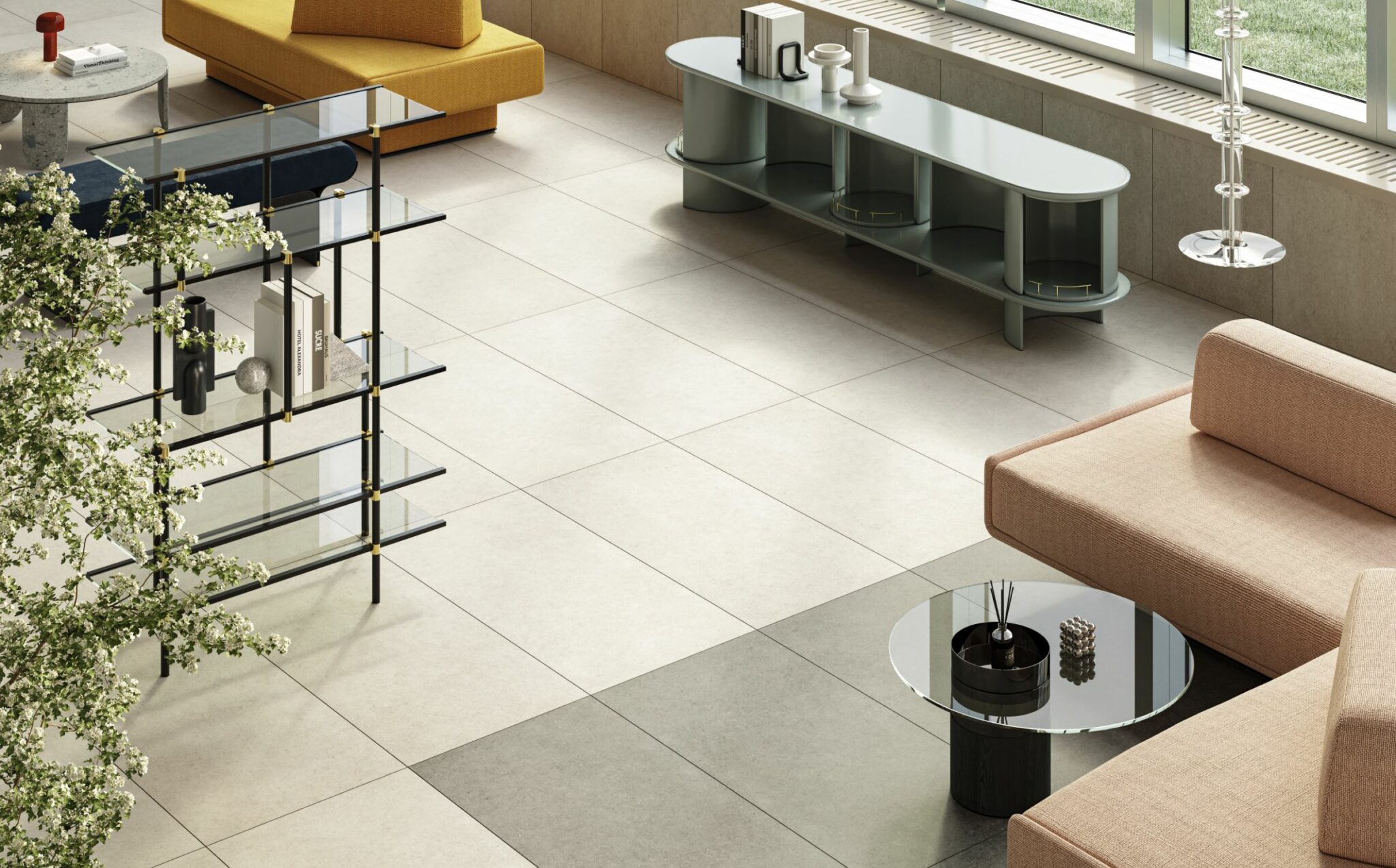The Bardelli Group’s Clayborn floor collection seamlessly marries centuries-old mining traditions with cutting-edge AI-driven generative design, producing extraordinary porcelain stoneware tiles that redefine the limits of creativity and innovation in the world of ceramics.
The Bardelli Group, a prominent player in the world of high-quality ceramics with brands like Ceramica Bardelli, Ceramica Vogue, and Appiani, has been at the forefront of technological advancements in the ceramic industry. Among its recent forays into cutting-edge technology, the Group has embraced Artificial Intelligence (AI) to revolutionize the creation of tile patterns, and the results are nothing short of astonishing.
The Clayborn floor collection, a testament to the Bardelli Group’s commitment to innovation, brings together the age-old tradition of mining with the cutting-edge capabilities of AI. This extraordinary collection is the product of a unique collaboration between the Bardelli Group and Clayborn Whisky, where the raw materials used in whisky production met the technological prowess of AI. The whisky, crafted from 35-million-year-old clayey water found in the Westerwalt caves, boasts exceptional organoleptic properties. Leveraging the same clay, Ceramica Bardelli has created the Clayborn collection, uniting the region’s mining heritage with the limitless possibilities of artificial intelligence.
Clayborn sets a new standard in flooring design, thanks to AI’s “generative models” that create unique patterns by analyzing a series of examples during the acquisition phase. This AI-driven approach has allowed the Bardelli Group to generate an infinite texture, blending the best elements of stones, cements, and terracotta. The design, a harmonious amalgamation of flooring trends, is made possible by AI’s ability to create materials that don’t exist in nature.

The process begins with an in-depth analysis and scanning of various natural stones and clays, resulting in a multitude of images representing these materials. Thanks to AI’s creative capabilities, Bardelli Group brings forth a wave of innovation with countless design possibilities for tile printing, bridging the gap between designers and advanced printing technologies for surface design. The Clayborn floor embodies a futuristic vision within the industrial design field, underlining the synergy between technology and human creativity. Designers play a pivotal role in selecting, checking, finishing, and optimizing the final output, with AI acting as a creative multiplier, yielding diverse and unpredictable results.
The Clayborn floor is crafted from porcelain stoneware, boasting a three-dimensional surface that ensures non-slip properties. It’s available in two sizes: 60×60 cm and 60×120 cm. In the realm of artificial intelligence, the Bardelli Group has partnered with Digital Design, a renowned design studio based in Fiorano Modenese, along with AImageLab laboratory at Unimore (University of Modena and Reggio Emilia). Together, they’ve developed a generative system for digital image creation on surfaces, marking a significant technological shift in the ceramic tile sector.
This bold embrace of technology underscores Bardelli Group’s commitment to innovation and competitiveness in the ever-evolving design landscape. As the ceramic tile industry transitions from analog to digital printing, the Bardelli Group remains a pioneering force, ushering in a new era in surface design through its dedication to technological innovation and a forward-thinking approach. The Clayborn collection is a testament to their vision of marrying tradition with AI’s boundless creativity, redefining the possibilities of tile design in the process.












